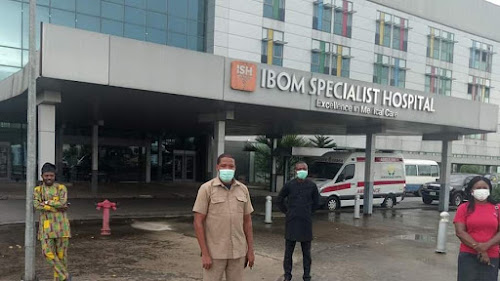Akwa Ibom hospital makes breakthrough on brain, open heart surgery
A medical facility in Akwa Ibom State, Ibom Multi-Specialty Hospital, says it has recorded significant milestones in the brain, spinal cord, and other critical surgeries
Chief Medical Director, Prof Emmanuel Ekanem who made the disclosure, said the recent extraction of a brain tumor through a patient’s nostrils has indeed proven that what hitherto took many on medical tourism abroad could be achieved in Nigeria.
Prof Ekanem who spoke through Dr. Udeme Ekrikpo, a Consultant Physician and Nephrologist, and Adjunct Director of Clinical Services and Training, Ibom Multi-Specialty Hospital, stated that the recently treated patient came with a tumor in the pituitary gland.
He said, “We have done a wide range of brain and spinal cord surgeries in the last one month, starting from simple things like putting in a shunt for people that have increased pressure in the brain, to advanced surgeries like a brain tumor. So the most recent was a patient that came in with a tumor in the pituitary gland.
“That tumor sits in the base of the brain, we didn’t have to open up the brain, so the experts that did the surgery went through the nostrils into the brain, got the whole tumor out. If an individual wants to do that kind of surgery abroad you are talking about a minimum of N6,000,000, but the patient paid less than N3,000,000.”
To further expand medical expertise in the Hospital, the medical expert explained that the state government recently set up a digital theatre that could allow specialists to have live interactions with other specialists in their fields while carrying out critical surgery.
According to him, the approach would allow the best hands to contribute from wherever they may be and also decongest the theatre.
Besides, Ekanem announced the preparedness of the hospital to set up cardiac catheterization laboratory in a month’s time, saying that such would allow people with blocked arteries in the heart, which usually causes “heart attack” to have easy access to medical care.”
He added, “with this laboratory, we will now be able to sort out the rising incidences of heart attack and deaths in this part of the country. We have all the equipment here. Heart conditions in babies would kill some before their fifth birthday.
“They are not uncommon in this part of the world. Especially one that has to do with having a hole between the two chambers that we call ventricles, this one usually requires heart surgery.
“October last year, we had a team from the US here who came to do open heart surgery for babies who were born with congenital heart defects and the exercise was extremely successful. We had ten babies who had their hearts opened, and all the equipment used were equipment owned by this hospital, it was fantastic.”
He expressed dismay that the plans to ensure a quarterly visit of experts on open heart surgeries was stalled by the COVID-19 pandemic but however gave the assurance that the negotiation will recommence for both children and adult as soon as COVID-19 phases out.
He also assured the public that the facility has world-class medical equipment and delivery suites enriched with cardiotocography machines to monitor the strength of contractions, the continuous monitor to check blood pressure, transport incubator, and neo-natal intensive care unit.
His words, “We also offer epidural options of delivery for those who may need such and we have the best laboratory in the whole of South-South Nigeria.
“We can run 108 chemistry samples in 15 minutes. Everything is automated. We also ensure we have backup for all the equipment. So we don’t have downtimes. We are even looking for large volume samples.
“We are looking forward to a system where all the hospitals around would form a network with this hospital, with good ambulance and good reference systems that can move patients and samples.
“We are getting a facility for telemedicine. So that the medical officer in a general hospital in Eastern Obolo or Ikot Abasi sees a case that is difficult and the patient is not well to do, the person hocks up with us here and we see the patient live, we examine the patient real-time and do a prescription from here.”




Comments
Post a Comment